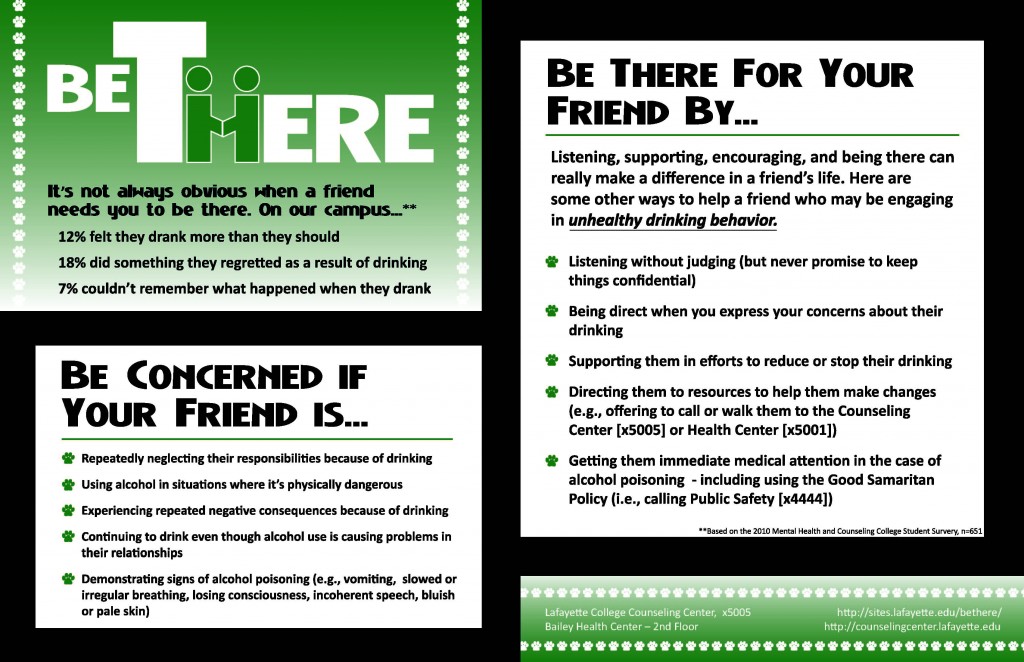It’s not always obvious when a friend needs you to be there. On our campus. . .
- 12% felt they drank more than they should
- 18% did something they regretted as a result of drinking
- 7% can’t remember what happened when they drank
**Based on the Mental Health & Counseling Student Survey (2010)
—————————
Be Concerned If Your Friend Is. . .
- Repeatedly neglecting their responsibilities because of drinking
- Using alcohol in situations where it’s physically dangerous
- Experiencing repeated negative consequences because of drinking
- Continuing to drink even though alcohol use is causing problems in their relationships
- Demonstrating signs of alcohol poisoning (e.g., vomiting, slowed or irregular breathing, losing unconscious, incoherent speech, bluish or pale skin)
—————————
Be There For Your Friend By. . .
Listening, supporting, encouraging, and just being there can really make a difference in a friend’s life.
Here are some other ways to help a friend who may be engaging in unhealthy drinking behavior.
- Listening without judging (but never promise to keep things confidential)
- Being direct when you express your concerns about their drinking
- Supporting them in efforts to reduce or stop their drinking
- Directing them to resources to help them make changes (e.g., offering to call or walk them to the Counseling Center [x5005] or Health Center [x5001])
- Getting them immediate medical attention in the case of alcohol poisoning – including using the Good Samaritan Policy (i.e., calling Public Safety [x4444])
—————————
Additional Resources. . .
How alcohol works
Rethinking Drinking
Advertising and the alcohol industry
How alcohol impacts the body
“Facts on Tap”
The Gordie Foundation

